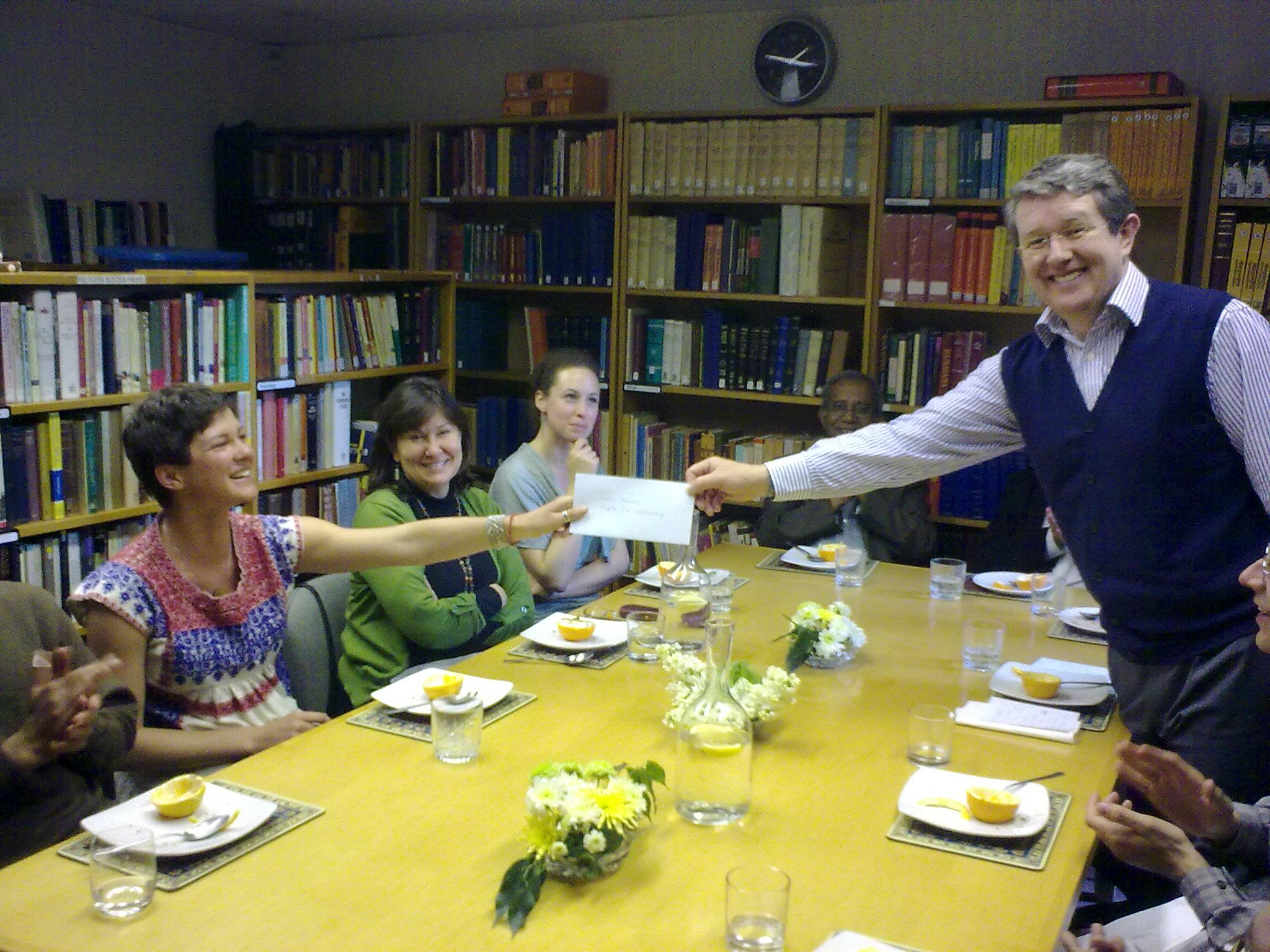Oxford Centre for Hindu Studies Campaigns for New Home
By Madhava Smullen | Dec 19, 2012

The Oxford Centre for Hindu Studies (OCHS) in Oxford, England has launched a campaign for a new, permanent home, now that it has outgrown its current facilities.
The OCHS, a Recognised Independent Centre of Oxford University and the world’s first academy of its kind for the study of Hindu culture, was launched with humble beginnings in 1997.
Its first home was a suburban house on Divinity Road, where there were only three students, and a library consisting of a handful of donated personal collections.
From there, the Centre moved to its current offices on busy Magdalen Street in central Oxford, where it could expand to accommodate student facilities, scholars’ rooms, administrative space, an archive, and a full-fledged library.
The Centre began to attract world-class scholars, launched pioneering education projects, and opened up the field of Hindu Studies for an international audience.
An increasing number of students received Oxford Degrees in multi-disciplinary studies including history, politics, literature, languages, philosophy, theology, and anthropology. Upon departing OCHS, they went on to teaching jobs at universities in the UK, the US, Sweden, Hong Kong, Israel and India.
In recent years, the Centre’s expansion rate began to speed up.
“Three years ago we had twenty-seven students and 6,000 books in our library,” says Director Shaunaka Rishi Das. “Now we have sixty students and a library of 20,000 volumes. Our popular Wednesday scholars’ lunch used to be ten students and scholars sitting around the table. Now there’s thirty-five, and it’s increasing.”
Add to that the fact that the Magdalen Street building’s fifteen-year lease is about to expire, and it’s the perfect time to find a new, permanent home for OCHS that will establish it solidly.

An OCHS student
With meetings and fundraising dinners to raise awareness and understanding of the need, half of the £1 million required has already been pledged by patrons.
These include Bollywood filmstar Amitabh Bhachan, Director of the Indian Council for Cultural Relations Dr. Karan Singh, and Deputy Leader of the Liberal Democrats in the House of Lords Navnit Dholakia.
Shaunaka Rishi hopes to find the new home for OCHS, which will be located in Oxford city center, sometime in the new year.
“We need twice as much space as we have now,” he says. “We want to be able to facilitate eighty to ninety students, add kitchens and a dining hall, and expand our library to 50,000 books. It will include works on history, archeology, architecture, and comparative religions; books on different sampradayas like Vaishnavism, Shavism and Shaktism; and Hindu religious texts such as the Mahabharat, Ramayana, Vedas, Upanishads and Puranas.”
As well as providing more space, the new building will firmly establish Hindu studies at Oxford, attracting students from all over the world. It will also continue to attract major long-term research projects, often by alumni.
“There’s the Shakta Project, looking at the development of the Shakta traditions; and Modern Bengali Vaishnavism, looking at Bengal Vaishnavism from the 1750s to the present day,” Shaunaka says. “Then there’s the Bhagavat Purana Project, looking at multidisciplinary research into the Bhagavat Purana. Interestingly, that’s a subject that’s never really been touched academically before.”

OCHS students
OCHS will also continue to release many publications. Its Journal of Hindu Studies comes out three times a year from Oxford University Press. It has already published twenty volumes of its Hindu Studies series with academic publisher Routledge. And it’s set to start another book series, Archeology and Religion, with the same publisher soon.
Shaunaka says that there are many reasons why OCHS is so well regarded and supported.
“It allows academics to critically study Hindu culture from different discipliniary perspectives,” he says. “It gives the tradition an opportunity to reflect upon itself
and to translate its message into modern contexts without straying from its principles. It also helps Hindu traditions become more open and transparent, giving others the opportunity to get more objective information about the traditions that make up Hinduism. And it helps Hindu culture develop a global articulate and authoritative voice.”
In the future, Shaunaka hopes that OCHS will become a model for the academic study of Hindu culture.
“We’d like it to be a template for developing similar initiatives in other countries around the world,” he says. “Including India, where no such center exists yet.”
To contribute towards a new home for OCHS, please visit http://www.ochs.org.uk/new-home-campaign/contribute















